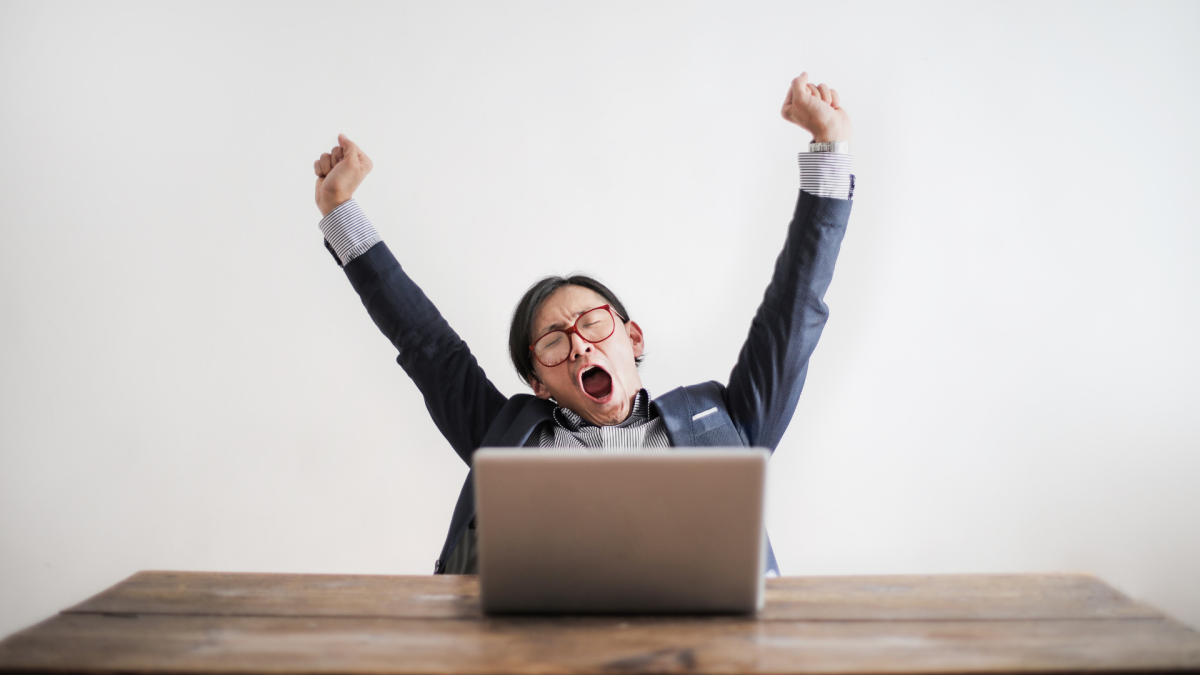Fact Checked
Intus Healthcare’s writers, customer service team, and sleep experts review and ensure this information is accurate.
Last updated on March 7th, 2024 at 10:33 am
Why do I wake up tired?
Many of us wake up tired, and there are many reasons for it. It can be difficult to gain enough quality sleep when life gets in the way. Sleeping for an average of seven to nine hours every night is recommended, so why are you still tired after sleeping for eight hours?
When we sleep, we go through a 4 stage sleep cycle; the last stage of the cycle is REM sleep (Rapid Eye Movement). This is also known as your deepest stage of sleep; without enough REM sleep, you will wake up feeling tired. Getting the right amount of sleep is important for your overall health and well-being, so figuring out what works best for you is essential. If you are consistently waking up tired, it could be due to poor sleeping habits, lack of exercise, the foods you eat, stress, or an underlying health condition. Although you may have heard eight hours of sleep is required, the sleep your body needs is individual to your body, and everyone’s different. The amount of sleep you need may be different to others. You might get eight hours of sleep, but you could need more or less, depending on your body.
Reasons why you are waking up feeling tired
Sleep helps you perform to your best, powering your mind and boosting energy levels. Your body needs sleep to restore from the day and regenerate for the days ahead. The amount of sleep an individual needs can vary depending on age, lifestyle, and overall health.
Here are a few common reasons why you are waking up tired after eight hours of sleep:
Caffeine: Foods and drinks high in caffeine are stimulants that make falling asleep and gaining quality sleep hard as they keep you awake.
Stress: Sleep and your mental health go hand in hand; stress, anxiety, and mental health conditions can leave you waking up tired.
Alcohol: Like caffeine, alcohol is a stimulant that keeps you awake. You may think that alcohol puts you to sleep, but it does the opposite, as it prevents you from gaining REM sleep.
Smoking: Those who smoke cigarettes or vape typically wake up around three to four hours into sleep due to nicotine withdrawal. The constant awakening interferes with your sleep cycle.
Weight: Your weight plays a part in your ability to sleep; a higher amount of fatty tissue around the neck and throat makes breathing harder when sleeping, putting you at a heightened risk of Sleep Apnoea.
Noise: If your surroundings are noisy, it can disrupt your sleep and make falling and staying asleep harder.
Medications: Some medications can include side effects that make falling asleep difficult; some examples include antidepressants, alpha-blockers and corticosteroids.
Blue light: The blue light from your electronic devices suppresses the sleep hormone melatonin.
Exercise: Exercising later in the day raises your adrenaline levels, increasing your heart rate and body temperature, which makes relaxing and winding down harder.
A sleep disorder: Sleep disorders primarily affect a person’s ability to gain quality sleep, as the body struggles to sleep for long periods. You might believe you sleep for a sufficient amount of time; however, you could experience broken sleep and get half the amount you believe you are.
Sleep debt: Being in a prolonged state of sleep deprivation is known as sleep debt. Many people that suffer from sleep debt have job roles (commonly shift workers) or lifestyles that cause them to have an irregular sleeping pattern, putting them constantly behind in their sleep. Living in a cycle of sleep debt puts you at a higher risk of reduced immune function, health conditions and metabolic dysregulation.
Ways to stop waking up tired
It is normal to sometimes wake up groggy with a lack of energy, but if you experience it frequently, there are things you can do to help.
Improve your sleep hygiene
Taking control of your sleep hygiene is one of the best ways to wake up feeling refreshed in the morning. Sleep hygiene consists of good practices you can follow that set you up for a restful night of sleep. Here are some ways you can implement good sleep hygiene:
- Maintain a consistent sleep schedule and get at least seven to eight hours of sleep each night.
- Avoid caffeine or alcohol late in the evening; these are stimulants that can disrupt your sleep. If you drink a lot of caffeine, try to avoid it closer to bedtime.
- Exercise regularly and make sure to eat a healthy, balanced diet. For more advice on how different types of foods can impact your sleep read our foods that help you sleep guide.
- Try reducing your stress levels with yoga or deep breathing exercises.
Lastly, ensure your bedroom is dark, quiet, and free from distractions. It isn’t about being a morning person; it’s about gaining quality sleep to take on the day ahead. You can read more on our sleep hygiene advice in our comprehensive sleep hygiene guide.
If you try all these things and are still waking up tired, testing for a sleep disorder should be considered.
Create a routine
Your circadian rhythm (internal twenty-four-hour body clock) has been found to trigger you to be an early bird or a night owl (1). However, even if you aren’t a morning person, implementing a routine can help you feel more alert.
Creating healthy habits before you sleep can set you up physically and mentally for the day. Here are some tips:
- Regular morning or bedtime meditation. Sleep meditation is a practice that helps prepare your mind and body for restful sleep. Examples of sleep meditations include gratitude meditation and breath meditation. Practising mindfulness for ten minutes a day can have a hugely beneficial effect on your sleep and mental health.
- Go to sleep at the same time every day; if you wake up early on weekdays, keep it up during the weekends! Consistency helps shift your sleep pattern, and after a while, your body will naturally wake up at this time. A great way to prevent you from hitting snooze is to place your alarm away from you so you can’t press snooze!
- Eat dinner earlier; eating earlier and at a similar time each day ensures your digestive system is working during sleep. Eating earlier also helps your body recharge for the morning ahead.
Health conditions related to waking up feeling tired
Several health conditions can leave you feeling tired in the morning. These include Anaemia, Hypothyroidism, Obstructive Sleep Apnoea, Diabetes, Depression, and Heart Disease. If you are feeling exhausted in the morning and have been keeping a healthy sleep routine, it is important to speak to your doctor.
Narcolepsy: Narcolepsy is a chronic brain condition that causes someone to have no control over when to wake up or sleep as the brain cannot regulate sleeping and waking patterns. Common symptoms include excessive daytime tiredness and sleep paralysis.
Insomnia: Insomnia is a sleep disorder that makes sleeping difficult. Many suffers experience waking up with a headache and finding it hard to go back to sleep.
Obstructive Sleep Apnoea (OSA): This sleep disorder causes breathing pauses throughout sleep due to the relaxation of muscles in the airway. A common symptom of OSA is excessive daytime sleepiness, as individuals are unable to achieve continuous sleep.
Restless leg syndrome (RLS): This neurological disorder causes an unpleasant sensation in the sufferer’s leg. Many people experience intense sensations and urges during sleep, making them wake up tired in the morning.
Waking up tired and Sleep Apnoea
One of the most common sleep disorders is Obstructive Sleep Apnoea; when left untreated, people experience constant drowsiness no matter how long they have slept. OSA causes repeated breathing pauses, inducing choking in sleep and gasping for air as the body regains oxygen. Although the disorder is common, around 80% of sufferers don’t know they have it. Many sufferers who sleep alone are unaware they have the disorder, as no one can tell them they stop breathing for periods of time.
It is estimated that one in twenty people have OSA, and it is around twice as common in men as it is in women. If your partner or roommate has noticed you choking or making a loud, exaggerated snoring noise during sleep, that is a clear sign that you may be suffering from Sleep Apnoea. In most cases, your brain then wakes up, opens your airways, and you start breathing again and fall straight back to sleep without realising it has happened.
These interruptions in your sleep are called micro-arousals. The apnoeas that cause these arousals can happen up to four-hundred times a night (for severe sufferers) but almost always go unnoticed. The result? Fractured, unrefreshing sleep which makes you tired during the day – despite seemingly sleeping well.
To treat the disorder, most people use CPAP therapy, which consists of a mask, machine and tube that delivers a continuous flow of pressured air to keep the airway open, preventing breathing pauses.
Take a Sleep Test. Results 10 days.
Our In-Home Sleep Test is a quick and reliable way to confirm if you have Sleep Apnoea.
The device records one night of your sleep to monitor your blood oxygen levels, body position, heart rate and Peripheral Arterial Tone. Your sleep data is then analysed by one of our NHS-trained sleep technicians.
You will receive a full sleep diagnostic report to determine if you have Sleep Apnoea in as little as two working days.
REFERENCES
- Hu, Y., Shmygelska, A., Tran, D., Eriksson, N., Tung, J. Y., & Hinds, D. A. (2016). GWAS of 89,283 individuals identifies genetic variants associated with self-reporting of being a morning person. Nature Communications, 7(1), 1-9. Available at: https://doi.org/10.1038/ncomms10448. Accessed 14.07.23
Helpful articles:
Products that support better sleep
-
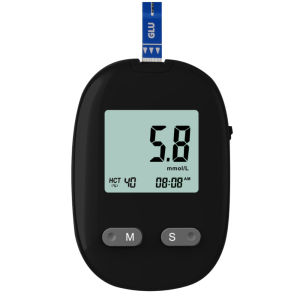 Blood Glucose Monitor£21.99
Blood Glucose Monitor£21.99 -
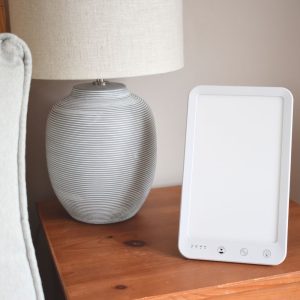 SAD Lamp – LED Daylight Lamp£49.99
SAD Lamp – LED Daylight Lamp£49.99 -
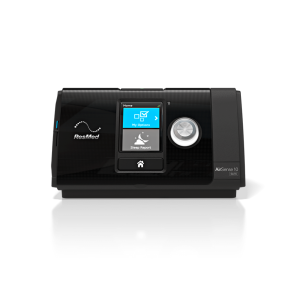 AirSense 10 AutoSet CPAP Machine£599.00 – £699.00
AirSense 10 AutoSet CPAP Machine£599.00 – £699.00 -
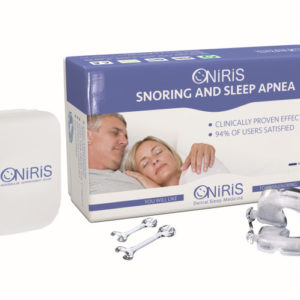 Oniris Clinically Proven Mandibular Advancement Device£119.00
Oniris Clinically Proven Mandibular Advancement Device£119.00

